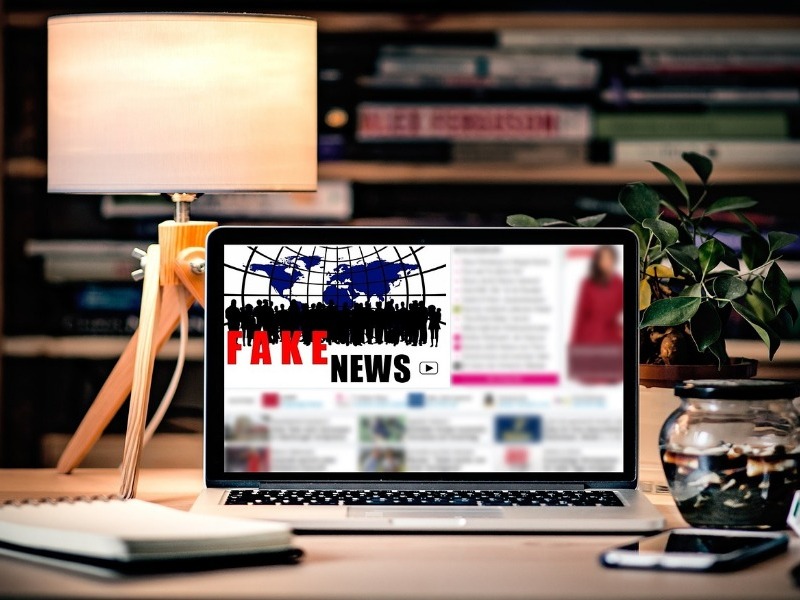How to spot fake news

Whether the term ‘fake news’ was coined by Donald Trump or not, it seems to have got into our vocabulary – and also into our search engines and social media accounts. In fact, it is everywhere, so here our social media manager looks at some of the ways to spot it.
Check the domain
When you are browsing on a search engine and suddenly spot a potential ‘fake news’ story, then a little tip is to look at the website address. Does it end in a legitimate top-level domain (TLD)? This is the last segment of the address, or the part that follows immediately after the "dot" symbol. TLDs are mainly classified into two categories: generic TLDs and country-specific TLDs, examples of which include .com, .co.uk, .org, .net, .gov, .biz and .edu.
Each country has a different TLD, Ireland’s for example is ‘.ie’ and many global companies use ‘.com’. If it doesn’t seem authentic or you don’t recognise the TLD, then it’s probably best to do a quick search of it before clicking on the article.
Does it make sense?
Another technique is to look at the way the article is written. If it is filled with keywords that don’t quite fit in with the flow or aren’t supposed to be there, the chances are it could have been created by Internet Bots.
Bots are a software application that run automated tasks (scripts) over the Internet. Typically, bots perform tasks that are both simple and structurally repetitive, at a much higher rate than would be possible for a human alone. Plus, they aren’t always accurate and as they can’t write as a human would, their articles will seem flat and will often include a number of grammatical errors.
Is the headline fishing for clicks?
‘OMG You Won’t Believe What this Celebrity Did!’
Be suspicious of headlines like this, usually false news stories have over emphasised titles to catch the reader’s attention. If it makes a claim that seems unusual or unbelievable, the chances are it is most likely false.
Does the site look professional?
Most counterfeit news sites have poorly designed layouts and their pages can be difficult to navigate. Secondly, check to see if they have any other articles on their website, usually a trusted source will have a number of stories and is updated regularly.
Check the photos
Checking the quality of photos is also a sure fire way to spot a false news article. If they look like they have been manipulated or tampered with they are probably fake. Similarly, if the pictures are from years ago or are easily obtainable on Google images or similar search sites, the chances are the author hasn’t been sent them by an agent or reliable source, so again it could be false.
Is the date right?
Check the dates, these are usually the biggest giveaway as to whether a story is real. The dates may have timelines which make little sense, or may have been altered in order to re-publish an old new story.
Alternatively, many old news stories that may be real but outdated tend to recirculate on social media. If the story was published years ago, although it may be true, it’s worth double checking whether it is still relevant.
Research the story before you source it
Our greatest piece of advice would be - if in doubt always look for other reports on the same story. Usually if they are fake, then there won’t be any similar articles published around the same time by a more reliable source such as BBC News or your local newspapers.
Fake news on social media is now more widespread than ever and something the government and many IT experts are working hard to clamp down on. When looking for reliable sources, it is incredibly important to make sure you filter through the articles in order to ensure the information is authentic. If you don’t and you end up sourcing or quoting a false piece of information, you could be as liable as the original writers. So if in doubt, check it out.
As a dedicated South Yorkshire based agency with over 15 years’ experience in helping b2b companies to generate results, we can put together an outline proposal that will help you meet your business objectives and make sure your news is always accurate and reaches the right people.
To find out more about how our PR, social media and digital marketing services can be of benefit to your business, or to discuss your corporate communications requirements, call 01709300130 or email hello@drgaonflypr.co.uk.
